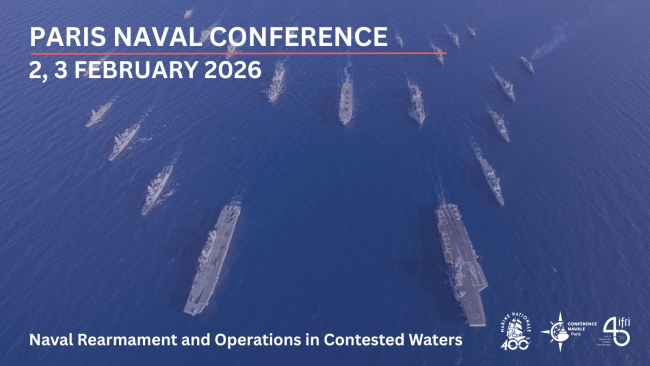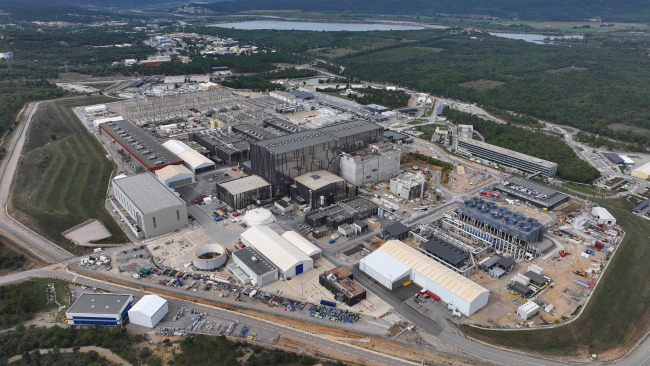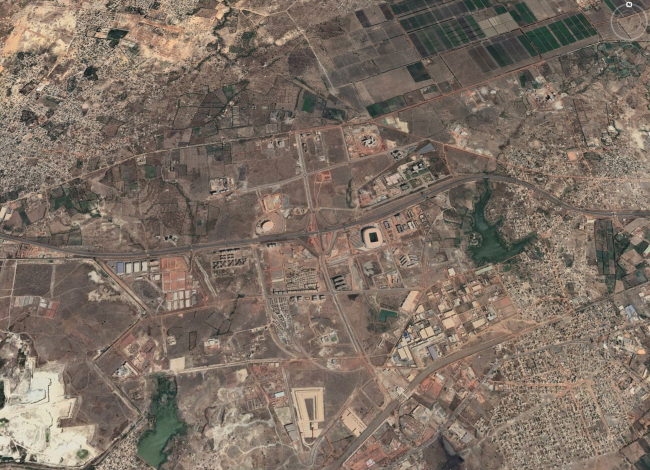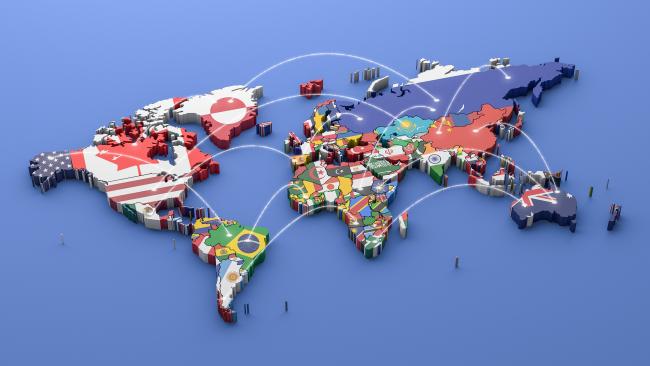
Practical information
Over the past two decades, increasing attention has been paid to digital infrastructure development and funding on the African continent. Whereas massive infrastructure gaps in funding persist, especially in rapidly growing urban areas, investments in telecom and digital infrastructure have been increasing.

Geopolitical competition in Africa between major digital players, such as China, the U.S. and the EU also unfolds in these sectors. Yet, it is crucial to consider and understand the agency, strategies and interests that the many African players involved pursue during the negotiation of contracts, as well as the design and implementation of projects. The conference brings together experts who will shed light on the geopolitics of digital infrastructure funding in Africa and the way it feeds into local and national politics.
This conference will take place in English, with French interpreters, in a hybrid format (in-person at Ifri, and online).
All times are listed in Paris time (CEST).
PROGRAM
Panel 1: Digital Infrastructure Partnerships: Geopolitical Competition and Local Strategy (14:30 – 16:00 CEST)
- David Ringrose, Head of Division, European External Action Service
- Folashade Soulé-Kohndou, Co-principal investigator of the ‘Negotiating Africa’s digital partnerships’ project, University of Oxford
- Henry Tugendhat, Economist, United States Institute of Peace
- Fabrice André, Senior Vice President Orange operations in Central & Southern Africa and Indian Ocean
Chair: Alice PANNIER, Research Fellow and Head of the Geopolitics of Technology Program, Ifri
Panel 2: Negotiating Digital Partnerships to Build “Smart” African Cities (16:15 – 17:45 CEST)
- Andrea Pollio, Researcher, Polytechnic University of Turin/African Centre for Cities/University of Cape Town
- Raymond Mendy, Former Director Texaf Digitial Kinshasa
- Alice Higiro, Smart Cities Project Director, Rwandan Ministry of ICT and Innovation
- Charlotte Escorne, PhD candidate, Institut français de géopolitique, Université Paris 8
Chair : Sina SCHLIMMER, Research Fellow and Coordinator of the Governing the Urban Transition in Africa research program, Ifri
Video of Andrea Pollio, Second panel speaker, Researcher at Polytechnic University of Turin/African Centre for Cities/University of Cape Town, talking about Konza Technopolis Project in Kenya:
Following the conference, a cocktail reception will be offered to participants.
Find out more
The Politics of New Cities: Diversification of Actors and Recentralization of State Power in the Case of Diamniadio
The construction of new cities on the African continent is in vogue. From multifunctional urban hubs to eco-districts, the images that accompany the announcement of these projects promote an African urban future based on modernity and technology.
The Technology Policies of Digital Middle Powers
Digital technology is an element of power in the international system as well as an area for competition among countries. The study provides a qualitative comparison of the technology policies of nine of the digital middle powers: Brazil, India, Israel, Japan, Kenya, Nigeria, Russia, South Korea, and the United Kingdom. It seeks to reflect the diversity of national technology policies, as well as to identify those countries’ convergences and divergences with Europe, the United States and China.
Neither Surveillance nor Algorithm-driven Consumerism. Toward an Alternative European Model for Smart Cities
Numerous smart city projects are emerging, guided by objectives of efficiency and improvement of public policies. All of them are based on intensive use of data and digital tools, but their concrete achievements take various forms. Some models are being exported and are becoming levers of influence, while Europe is still looking for its own path.
Related Subjects
Other events

Paris Naval Conference 2026: Naval Rearmament and Operations in Contested Waters
This fourth edition of the Paris Naval Conference (CNP), bringing together high-level military, industrial, and academic speakers, will address the challenges associated with general naval rearmament and naval operations in increasingly contested environments.

Is Fusion Coming Faster and Cheaper than Expected?
ITER was for long time the embodiment of fusion as an international, long standing R&D cooperation objective to seek a new way to produce safe, low carbon and abundant low carbon electricity. Yet over past years, fusion start ups, several governments and investors have decided to push fusion R&D and deployment to complement ITER. Major efforts are ongoing notably in the United States, China, Germany, Italy.

EV Supply Chains for Japan and Europe: Strengthening Economic Security
Economic security aims to ensure the resilience of supply chains for key industries: the case of electric vehicle production in Japan and Europe will be discussed.










